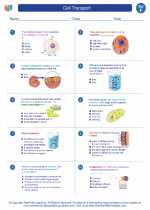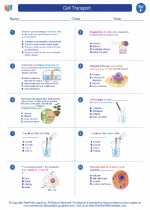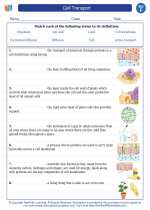Neutrons
Neutrons are a type of subatomic particle that are found in the nucleus of an atom, along with protons. Neutrons have a mass similar to that of protons, but they do not have an electric charge. This means that neutrons do not have a positive or negative charge, unlike protons and electrons.
Neutrons play a crucial role in determining the stability and properties of an atomic nucleus. The number of neutrons in an atom can vary, leading to different isotopes of the same element. Isotopes are atoms of the same element that have the same number of protons but different numbers of neutrons.
Neutrons are also important in nuclear reactions and nuclear energy production. For example, in nuclear fission reactions, neutrons are used to initiate the splitting of atomic nuclei, releasing energy in the process.
Study Guide
- What is a neutron?
A neutron is a subatomic particle found in the nucleus of an atom, with a mass similar to a proton but no electric charge. - What is the role of neutrons in an atomic nucleus?
Neutrons help determine the stability and properties of an atomic nucleus, and the number of neutrons can vary to create different isotopes of the same element. - How are neutrons important in nuclear reactions?
Neutrons are used to initiate nuclear reactions, such as nuclear fission, which release energy and are used in nuclear energy production.
Understanding the role and properties of neutrons is essential for understanding atomic structure, nuclear reactions, and the behavior of different elements. It is important to study and comprehend the concept of neutrons in order to grasp the fundamentals of chemistry and physics.
[Neutrons] Related Worksheets and Study Guides:
.◂Science Worksheets and Study Guides Sixth Grade. Cell Transport

 Worksheet/Answer key
Worksheet/Answer key
 Vocabulary/Answer key
Vocabulary/Answer key
 Vocabulary/Answer key
Vocabulary/Answer key
